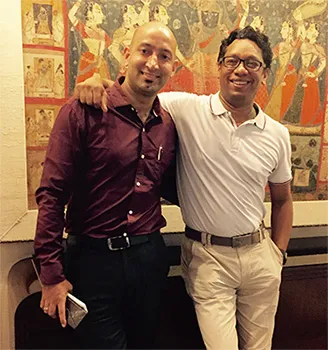With over 3,500 monthly home healthcare visits across Delhi, Pramati Care competes with the likes of Portea Medical

With a growing number of startups looking at the tertiary care space in India, customers (most often patients) have started looking for the best options available in the market before signing up for this kind of help.
My grandmother was schizophrenic for over 25 years, and my parents took care of her for the most part. When things went out of hand – a combination of problems associated with old age and the accompanying incontinence— we needed help. We were lucky to find a compassionate nurse from a social organisation in Chennai. I remember the respect and love she showered on my grandmother during the last few months of her life, making it a pleasant memory for all of us.
Vishal Jain was not as fortunate: he had had bad experiences with caretakers in the past, and this is what pushed him to start Pramati Care for home healthcare in Delhi.
The bitter taste
Vishal says, “I was in Dubai, and we had to organise a caretaker for a relative. The person who came home had poor personal hygiene, was tardy, didn’t know procedures, and was not the least bit compassionate. She was unreliable in reporting for work. And to top it all, she vanished one day without a word and had stolen things from the house.” He adds that they tried calling the agency that sent the caretaker, but no one answered the calls.
When Vishal returned to India in 2012, he saw that this space was highly disorganised and wanted to create something that would combine professionalism, technology with standard processes in tertiary care.
With suggestions and help from his doctor-wife, Vishal founded Pramati Care in May 2014. The idea excited Deep Bajaj, who was already in the ecosystem with his intimate care product PeeBuddy, and convinced him to join the venture in the next few months.
What Pramati offers
Pramati offers services like assistive care, adult nursing care, and rehabilitation available at the home of the patient. The company works as an agency that recruits and trains caregivers and deploys them to perform various services. They also ensure the people they employee are well-groomed caregivers who know the standard practices.
“We don’t want to send caretakers without training, so we bring in doctors who train them specially for one week before handling special cases like Alzheimer’s or for post-operative care,” says Vishal.
The company’s monthly charges range between Rs 15,000 and Rs 75,000, depending on the kind of service. Though the pricing may seem a tad steep, Vishal says the company provides all the accessories and services required to make one’s home as functional as a hospital, and helps people avoid over-the-top hospitalisation charges.
Pramati also offers a wide range of medical, assistive, and diagnostics tools for rent. For instance, when a tourist lands in Delhi and needs an oxygen cylinder or a wheelchair for a few days, they can borrow it from the company at a nominal cost.
The market opportunity
According to an IBEF report, the overall Indian healthcare market today is USD 65 billion, of which the hospital supplies and healthcare equipment segment is believed to be only around USD 4.5 to five million. Healthcare delivery, which includes hospitals, nursing homes and diagnostics centres, and pharmaceuticals, constitute 65 per cent of the overall market.
It also reported that India would require six to seven lakh additional beds over the next five to six years, which throws open an opportunity of more than USD 25 to 30 billion. While existing hospitals would look at expanding their capabilities, a lot of new properties and home-based care services would also come up.
There are multiple startups in this space, some of which have captured a large chunk of the market. Portea Medical, a Bengaluru-based startup is one of them, and operates in 18 cities across India. Some of the others are GoodHands, Tribeca Care, and Epoch Elder Care.
Pramati, which is currently bootstrapped, has over 100 caregivers, nurses, rehab experts, including physiotherapists and speech therapists. It makes over 120 visits a day and approximately 3,500 visits a month across Delhi and Gurgaon.
As far as future plans go, Vishal wants the company to become synonymous with quality long-term care and rehabilitation for a wide range of geriatric and terminal ailments.
“We want to reach over 1,000 customers and 30,000 visits per day across India by 2018,” he adds.







![[Funding alert] Edtech startup Embibe raises Rs 90 Cr from Reliance Industries](https://images.yourstory.com/cs/2/730b50702d6c11e9aa979329348d4c3e/yourstoryAditiAvasthi1576577844445png?mode=crop&crop=faces&ar=1%3A1&format=auto&w=1920&q=75)